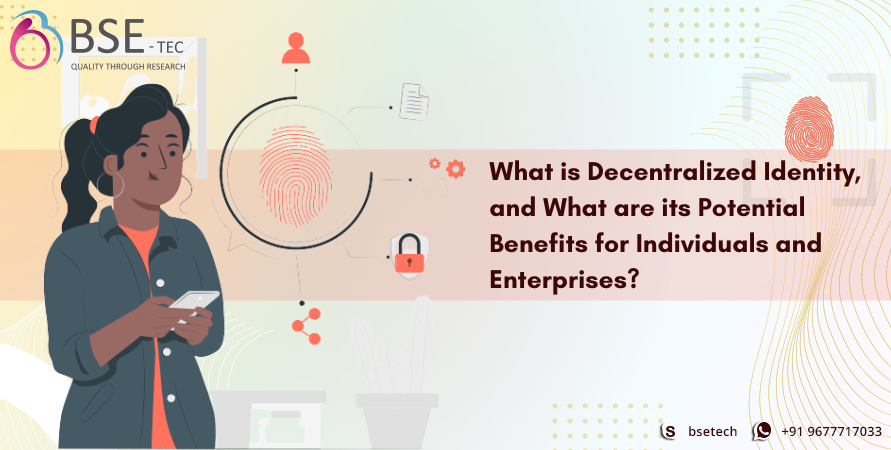What is Decentralized Identity, and What are its Potential Benefits for Individuals and Enterprises?

Using online services, opening a bank account, voting in elections, buying property, securing employment, document verification or authentication – Every aspect of our life requires proving our identity. With digitalization, we have digital identity systems, but all these traditional digital identity management systems hold all the identifiers and attestations related to our digital identities in a centralized server. Decentralized identity has a potential to overcome all the challenges we face in traditional identity management. Here is a blog to help you learn what decentralized identity is, its potential benefits and how it’s changing the digital landscape.
What is a Decentralized Identity?
Decentralized identity is a new way of managing personal data that puts users in control of their personal data. In simple words, it is the idea of managing our data in a decentralized manner by making use of decentralized Identifiers and Attestations.
Why do we need Decentralized Identity Management System?
The traditional digital identity systems store our personal data along with identifiers and attestations and the system is centralized thus making the organization to have all the control over the users personal data. As we all know, data is the new gold and the data brokers are selling people’s personal data to companies to make informed decisions, making us all vulnerable to data breaches and privacy issues. Here are a few statistics in regards with the data breaches and phishing attacks that have caused major issues in data privacy.
- According to Verizon email for 80% of malware infections and almost 95% of all espionage attacks.
- In 2021, the healthcare industry was subject to 33% of all attacks that were caused by third parties.
- Small businesses are the victims of 43% of data breaches.
- For large corporations, the average cost of a data breach is US$204 per employee while for SMBs it costs an average of US$3,533 per employee.
- Twitter almost had a data breach leaking data of 400 million user accounts.
- Another instance is where 540 million records were exposed in a Facebook data leak, which included Facebook IDs, passwords, Facebook friends, photos, and check-ins.
Key Benefits of Decentralized Identity Solutions
Identity or Digital identity underpins virtually every aspect of our life in today’s changing digital landscapes. Here are the key benefits of decentralized identity solutions in regards to individual and organization point of view.
- Why Is Decentralized Identity Important for Individuals?
✓ With decentralized identity management, users can have full control of their personal data.
✓ It is easy to prove claims without the need of third parties.
✓ Prevent device and data tracking as they browse websites.
✓ Users have the power to choose to whom they can share data and to whom they can’t share.
✓ Data is stored in a blockchain backed digital wallets that is decentralized thus preventing data breaches and security issues.
- Why Is Decentralized Identity Important for Enterprises?
✓ For enterprise, decentralized Identity management saves an ample amount of time that is wasted in waiting for the authentication process that are carried out by third parties.
✓ Prevents certificate Fraud.
✓ Improved data security since the data is encrypted using strong cryptographic functions.
✓ It allows enterprises or organizations to verify user credentials instantly.
- Why Is Decentralized Identity Important for Developers?
✓ Creating opportunities to build user-centric apps that eliminate the need for passwords and an inefficient authentication process.
✓ Privacy of user data is not compromised since there is no third party authentication.
Many ambitious decentralized identity projects are being developed with ethereum as the base blockchain. It is the choice of the enterprises to choose the type of blockchain they need to develop a blockchain based decentralized identity solution. Get in touch with BSEtec for a free blockchain consultation.




